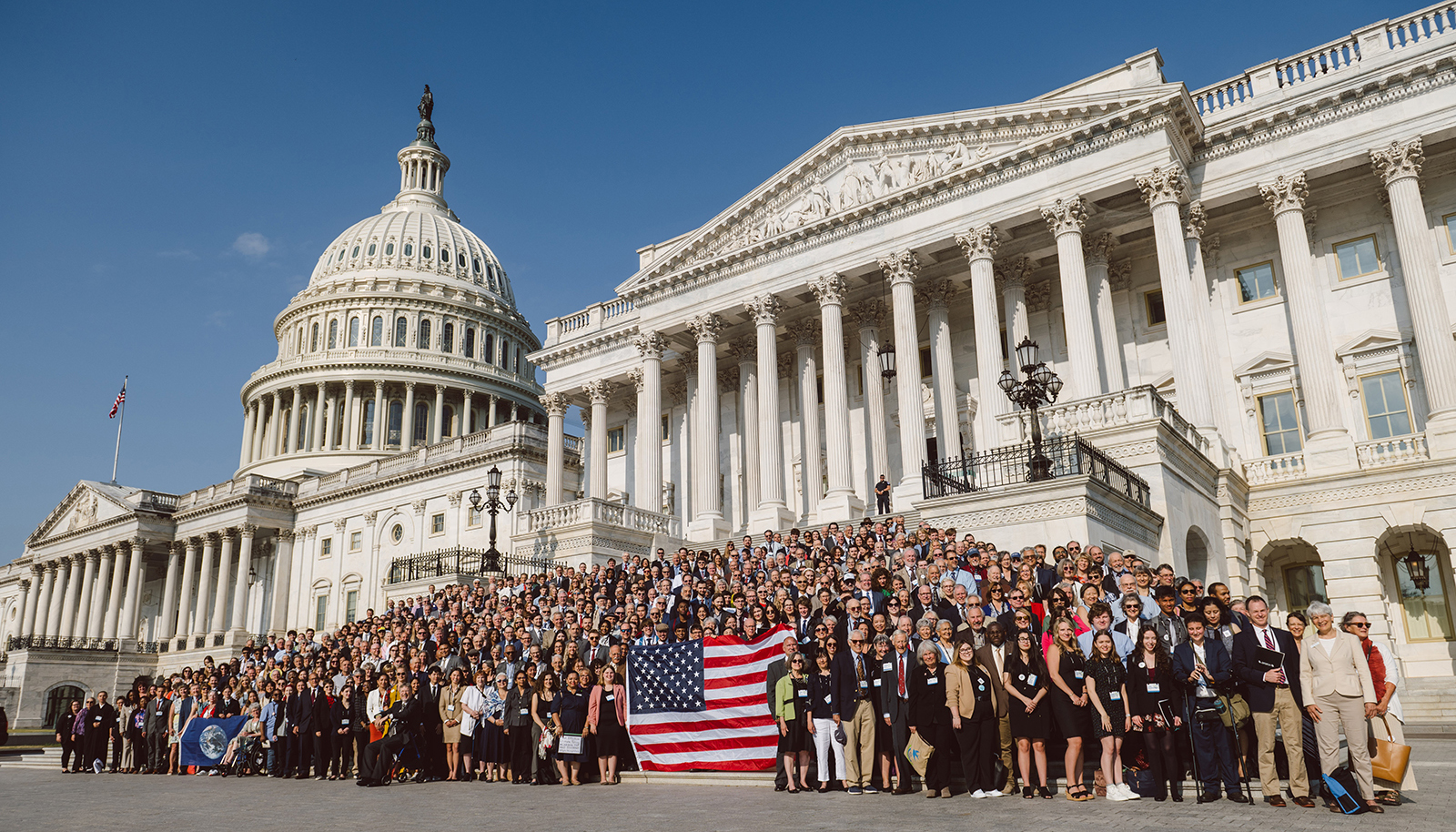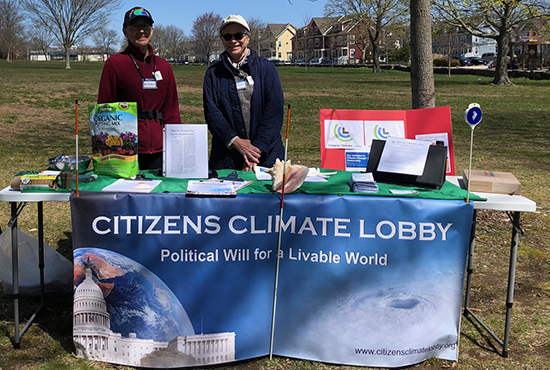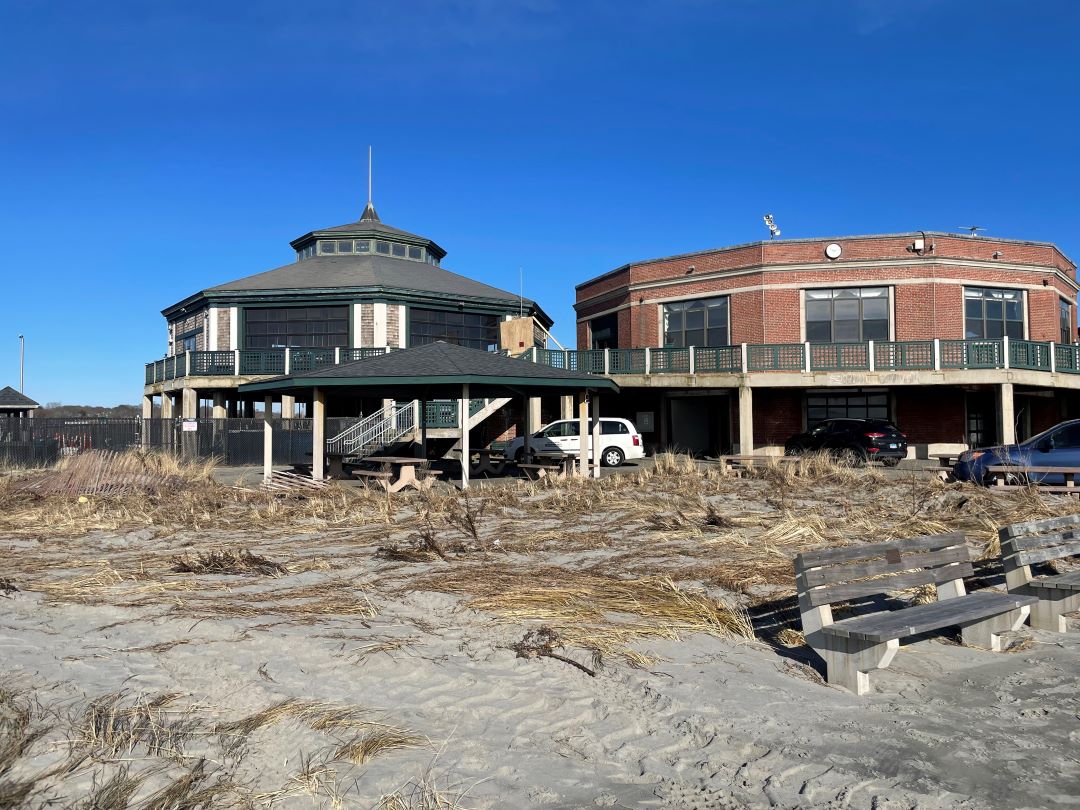Climate Action: ‘Gray is the New Green’
February 28, 2024
The six Baby Boomers on a recent Zoom spoke to this Generation X reporter with passion, confidence, and optimism. They believe the collective we has the capacity and desire to address the climate crisis our generations and those before and after us helped create.
Technically, Randy Watts and Dr. Peter Trafton, both 80, are considered members of the Silent Generation, but since neither seemed to possess that skill, for this story they have been reclassified as Boomers. (The average age of the six Boomers ecoRI News spoke with is 73.)
They noted older Americans are feeling an increasingly greater sense of urgency in engaging in climate and environmental actions. That’s good, because our grandmothers and great-uncles posses generational wisdom and have environmental activism experience. They know stuff.
They also have something Millennials, Generation Z, and Gen Alpha don’t yet posses: structural power necessary to make or force needed change. There are some 70 million Americans older than 60. Baby Boomers, born between 1946 and 1964, control more than two-thirds of the country’s household wealth. By 2050 people older than 65 are projected to account for 22% of the country’s population, up from 17% presently.
A report published in November by the Boston-based Environmental Voter Project that looked at the patterns of registered voters in 18 states found that people 65 and older represent the second-largest climate voter group.
Voters aged 65 and older are second only to those between the ages of 18 and 34 in naming climate and the environment their highest political priorities, according to the 12-page report titled “Gray is the New Green.”

Several climate action groups such as the Citizens’ Climate Lobby (CCL) and Third Act teach older folks how to lobby and how to engage with their communities about climate change.
Jamestown resident Mary Jane Sorrentino was one of three people who founded CCL’s Rhode Island chapter in 2012. She said the local chapter was created to get to “the root cause of the problem, which is the very low costs of using fossil fuels … for the environmental damage they do and all the subsidies they get.”
The 70-year-old has been active in pushing the General Assembly to adopt a carbon fee and dividend program.
While state lawmakers have so far resisted such an effort, the Boomers believe such a program here and elsewhere is vital if greenhouse gas emissions are to be drastically reduced.
They noted carbon pricing legislation would send a strong message and entice companies to invest in innovative states that are moving toward a low-carbon economy. They said taxing carbon is a market-based, business-friendly approach that creates jobs and raises everyone’s standard of living while creating public and environmental health benefits as pollution is reduced.
Rhode Island spends some $4 billion annually on out-of-state fossil fuels — money that could be invested in the local economy, they said.
“I’ve been concerned about climate change for a long time, especially when the winters started changing so dramatically,” Sorrentino said. “I grew up in southern Connecticut, so when my kids were young, we wanted to skate on ponds and do winter things that I did as a child … but it became increasingly difficult as the years passed. And now it’s even worse.”
CCL, which uses a non-partisan approach to “empower everyday people on climate policy,” has some 220,000 members spread across more than 380 U.S. and 150 international chapters. The Rhode Island chapter (RICCL) has about 600 members, according to Barbara Sullivan-Watts, RICCL’s state coordinator and Randy’s wife.
The retired University of Rhode Island oceanographer studied the impacts of nutrient pollution and climate change on Narragansett Bay. She also taught a climate change course at Providence College.

“We are known for encouraging bipartisan climate legislation (yes there is some!) in a persistent, yet friendly and respectful way,” Sullivan-Watts, 76, wrote in an email prior to our Jan. 31 online conversation. “At a June 2022 reception in Washington DC featuring Senator [Sheldon] Whitehouse, he said of CCL, ‘I love Citizens’ Climate Lobby. You guys are the best. There is no better environmental group and a particular shout out to my Rhode Islanders right here.’”
The Kingston resident noted RICCL members: lobby federal legislators in person and by phone and letter; host community meetings and classes for middle school to college students; submit letters to the editor and opinion pieces about climate change to media outlets; testify at General Assembly committee hearings relevant to climate laws; coordinate actions with other environmental groups; attend and comment at meetings of the Executive Climate Change Coordinating Council; and solicit views of legislative candidates on climate at public meetings.
All six of the Boomers who participated in the recent conversation with ecoRI News are RICCL members. Cumberland resident Caroly Shumway, 65, and Providence resident Bill Ibelle, 69, also shared their thoughts about how to deal with the climate crisis.
Shumway was born into the world of climate science. One of her grandfathers was Roger Revelle, an oceanographer and explorer who was among the early scientists to study anthropogenic global warming. His research showed the ability of the oceans to absorb carbon dioxide. A research vessel, the R/V Roger Revelle, is named in his honor.
Shumway stressed the “power of one person” and having the “will to change” behaviors and attitudes. Randy Watts agreed, but added that “collective action is also very important.”
“Climate is a serious problem and we need to act together to help make change, with actions like putting pressure on banks and insurance companies,” the URI oceanographer said. “If you are lucky enough to have $250,000 in the bank, that money gets invested by the bank to a great extent in loans to oil and gas for digging, exploration, and building pipelines.”
Ibelle is a fairly new RICCL member. He joined the climate advocacy movement because he was “looking for ways to be useful and productive and make some kind of an impact on the world.” He noted trying to find where to help can be “overwhelming.”
“I started off with just simple environmental volunteering, where I planted beach grass and tried to get some wetlands back, dug trenches, cleaned up beaches,” he said. “And most people can do it better than me because I got a bad back and rotten knees.”

He now puts his writing skills to work helping RICCL reach lawmakers and policymakers. ecoRI News recently published an opinion piece by Ibelle about offshore wind.
This Rhode Island six-pack, along with the rest of the RICCL volunteers, are committed to building the political will required to address a planetary emergency.
In written testimony submitted to the House Education Committee in 2022 in support of the Climate Literacy Act, Trafton wrote:
“We recognize, along with thousands of climate scientists that global warming is caused by greenhouse gases emitted by burning carbon-based fossil fuels for energy and heat. The resulting impacts on our environment will become devastating, and they are already being felt in Rhode Island — increasing heat, sea level rise, severe weather events, public health issues, and serious threats to our economy.”
The bill, like the ones proposing a carbon tax, was held for further study.
During our Zoom talk, the retired orthopedic trauma surgeon said, “I’m a really fortunate old white guy who is really proud and happy to be in with a group of folks like we’ve been listening to.”
To address the climate crisis, Trafton said it will take all kinds of people with different ideas and perspectives.
While older people are a resource for addressing climate change because of their concern for legacy and their decades of knowledge and experience, they, along with those living in marginalized communities and those with disabilities, are the groups that are being and will be the most affected.
The climate crisis is a complex, long-term public health problem and older people are especially susceptible to certain climate change impacts, such as heat waves and flooding.
As weather extremes become more frequent and intense because of our long and continued burning of fossil fuels, the world’s population is getting older. This poses a significant global challenge, as the world’s elderly population doesn’t share the same space as the six Boomers working tirelessly in Rhode Island to help hold back the climate crisis tidal wave.
In six short years, around one out of every six people worldwide will be 60 or older, according to the World Health Organization. By that time, this age group is expected to number 1.4 billion and is projected to increase to 2.1 billion by 2050.
Many older people, however, lack the physical, mental, social, and financial resources needed to avoid or reduce the impacts of extreme weather, according to the National Institute on Aging. During the past two decades, heat-related deaths among people aged 65 and older worldwide have nearly doubled. Diarrhea, malaria, and other diseases spread quickly in flooded areas. Heat can be deadly.
In Rhode Island, there is a group of life veterans pushing climate action, to help solve a worldwide problem that is and will impact their contemporaries in the Global South more than them and is on track to leave a future devoid of them in shambles.
“We’ve really got to convince people that this is an important thing to do,” Trafton said. “I’m 80 years old, I’ve got four little grandkids, the oldest of whom is 10, and I’m pretty eager to make change. I think that people in all age groups are going to have to bend their backs and minds.”




I wish all of my fell0ow boomers were doing as much as these guys. Proud to know most of them.